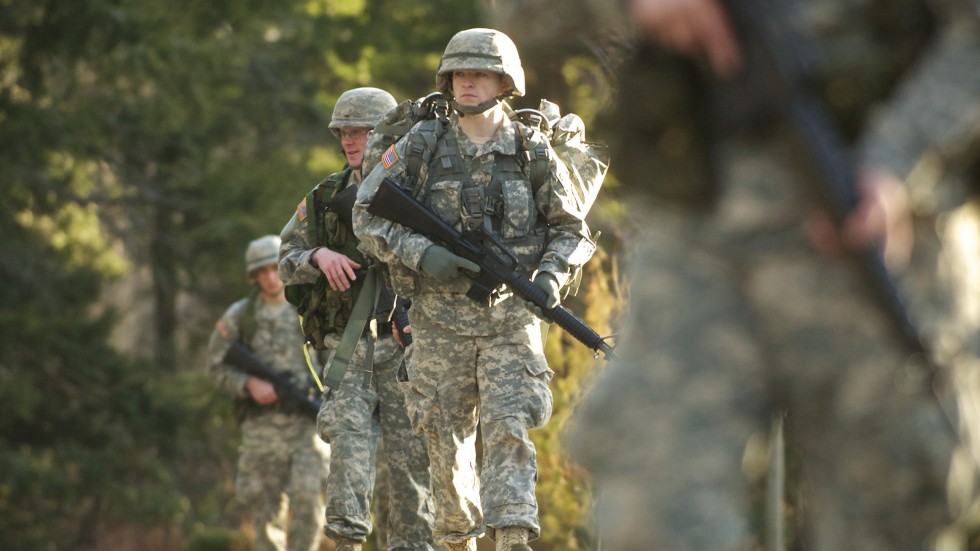Military Science (ROTC)
U.S. Army ROTC offers a program designed to train future junior officers for leadership with instruction that complements a baccalaureate degree. The program consists of three parts: earning an academic degree in a recognized field; college courses of particular interest and value to military service; and military science courses.

The objectives of the Military ROTC program curriculum include providing students with an understanding of the nature and operation of the U.S. Army, developing leadership and managerial potential, and developing students’ abilities to think creatively and to speak and write effectively.
Essential to an officer’s education are the ability to evaluate situations before making decisions; the ability to understand people and how to lead; the fundamentals of self-discipline; the standards of performance and appearance; the ability to recognize these standards in others; and, above all, a strong sense of personal integrity, honor and responsibility.
While unified by the subject matter of leadership and management, the curriculum cuts across conventional boundaries, encouraging students to relate their learning from various disciplines and to apply it to reflective thinking, goal setting and problem solving.
Basic Course
The Basic Course is normally taken by first and sophomore-year students. It introduces basic subjects such as the history of the U.S. Army, organizational structure of the Army, techniques and principles of leadership and management, and map reading.
Advanced Course
The Advanced Course is taken by juniors and seniors. Students in the Advanced Course must sign a contract with the Army, pass a qualifying medical examination and physical fitness test, and have at least a 2.0 grade-point average. Studies concentrate on basic tactical operations, military teaching principles, and advanced techniques of leadership, management, and command.
Sample Courses
Leadership Laboratory
Foundations of Tactical Leadership (1 credit)
Training Management and the Warfighting Functions
Foreign Language Training Opportunities
Army ROTC Cadets have the opportunity to apply for and participate in a vast array of language training opportunities, in particular Project Global Officer (Project GO) and The Army’s Cultural Understanding and Language Proficiency (CULP) Internship program.
Project Global Officer
The Project GO program allows cadets (contracted and non-contracted) to apply to study languages over the summer at over 20 participating colleges across the country (to include our battalion’s host school, Boston University) for up to 8 credits. University fees, meal plan and dormitory rooms included! The program also has language immersion trips abroad to locations such as Shanghai, China and Rabat, Morocco as well.
Cultural Understanding and Language Proficiency Internship
The CULP Program allows contracted cadets the opportunity to attend summer training abroad for several weeks of language immersion in locations such as Costa Rica, Tanzania and Korea. Talk to your MS advisor for details.
Both the Armed Forces and the world of international commerce and business need professionals who are culturally astute and competent in a foreign language. Make the most of your training time now!